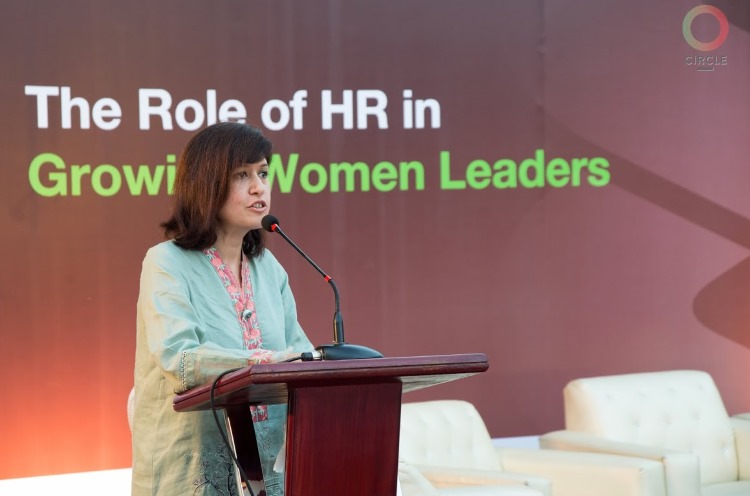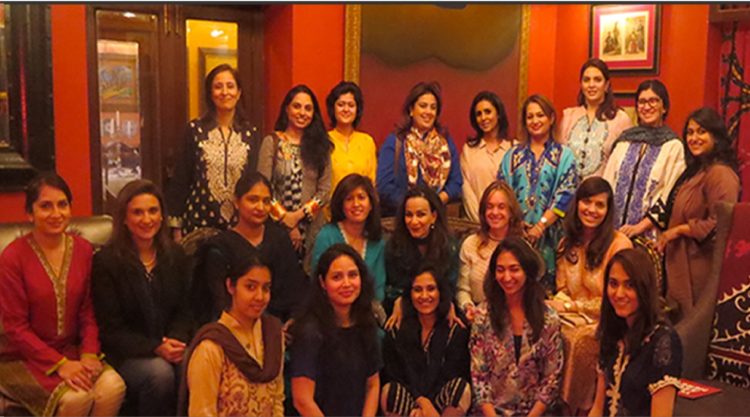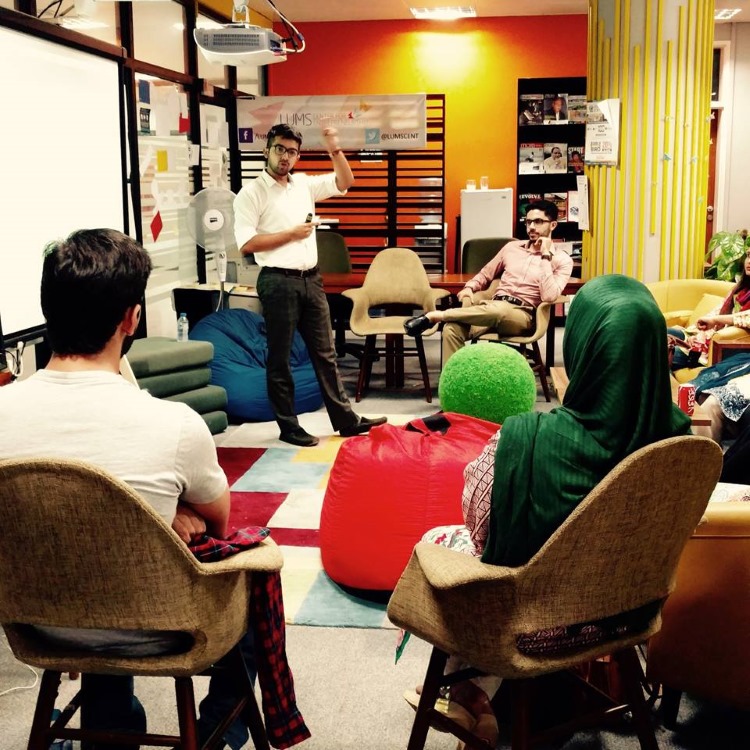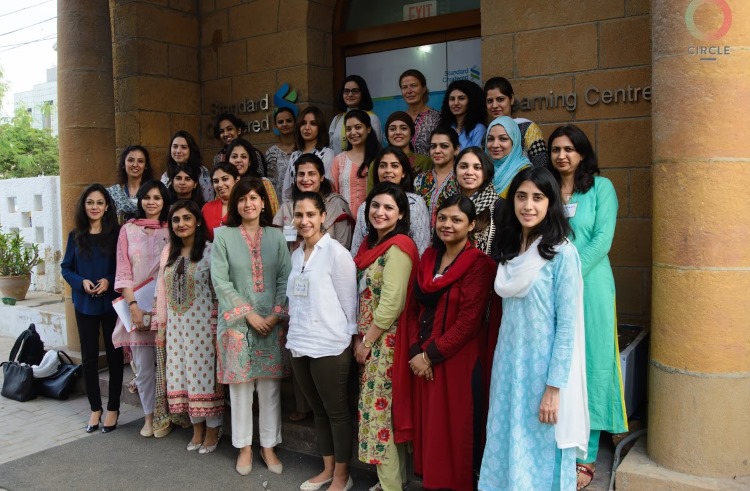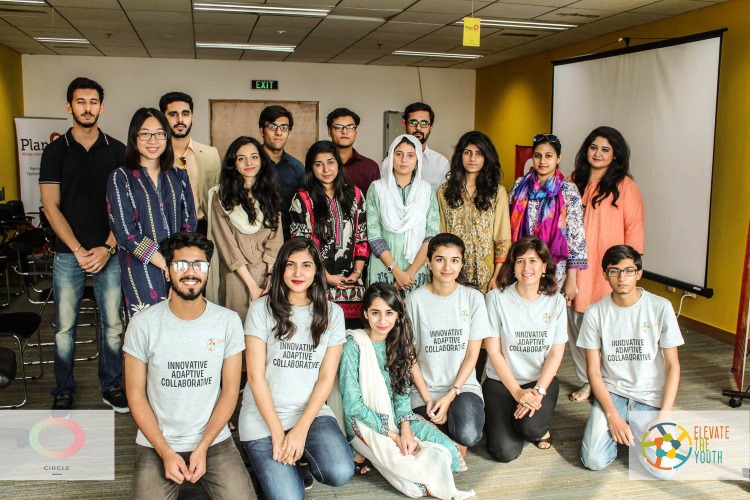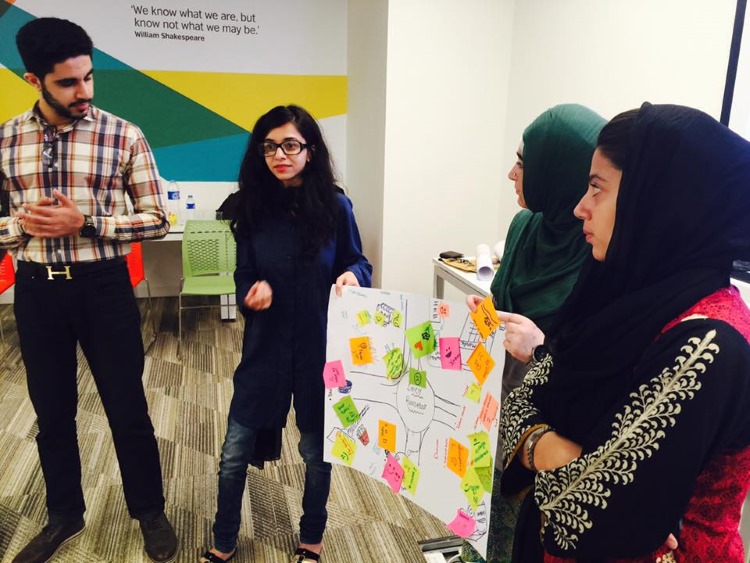Pakistan is slowly but surely waking up to the potential and opportunity that entrepreneurs bring for a country’s society, culture and economy. Social innovation can help Pakistan make better use of its untapped human capital, which is why programs for spearheading such initiatives are very much needed.
Elevate The Youth program is one such initiative that is geared to help Pakistani youth contribute significantly to the country’s entrepreneurial landscape. It was the brainchild of Sadaffe Abid, who is also the co-founder of CIRCLE, a social enterprise that works on women’s advancement, leadership and youth entrepreneurship.
Sadaffe Abid, Co-Founder of CIRCLE
Profile of Sadaffe Abid
Sadaffe Abid is the former CEO and COO of Kashf Foundation, one of Forbes Top 50 microfinance institutions. She helped the company grow from a pilot in two rooms to serve 300,000 women clients in Pakistan. During her tenure, Kashf received the AGFUND International Prize and Grameen Trust Microfinance Excellence Award.
She completed her Masters at the Harvard Kennedy School, Advanced Management Program at INSEAD and her B.A. at Mount Holyoke College. She is a recipient of the Mount Holyoke Alumni Achievement Award and a TEDx INSEAD Speaker.
Elevate Team with Senator Sherry Rehman
We recently reached out to Saddafe about Elevate the Youth (ETY) initiative, her thoughts on how women are faring in entrepreneurial ventures in Pakistan, and how CIRCLE is helping in empowering Pakistani women.
Tell us about the beginnings of Elevate the Youth program and some of its main features.
Elevate The Youth (ETY) began as an idea by
CIRCLE, a social enterprise working on women and youth advancement, advocacy and entrepreneurship. We were inspired by the vision to inculcate key values and capacities within Pakistani youth so they can thrive in today’s complex world and bring their ideas forward to create impact for Pakistan.
Our model provides professional experiences to students through internships with our partner companies which range from start ups, corporates to leading social enterprises; alongside this our Fellows have the opportunity to attend specially designed workshops and seminars that inspire and facilitate their development.
Another key feature is a Social Innovation Project where ETY Fellows collaborate in teams to create innovative, sustainable and technology based entrepreneurial solutions for Pakistan’s challenges. This is the main crux of the ETY Accelerator where we also have mentors who work with the teams.
Through the accelerator, we encourage the youth to be aware of world issues, be solution centric, inclusive and adaptive in their approach. These values are the backbone of our program.
Last weekend on July 26, our Fellows worked on a community service program with Robin Hood Army where they helped feed 600 meals in a hospital. This unique feature of our accelerator aims to instill public service in each member of our society and to celebrate the life of Abdul Sattar Edhi Sahib by making volunteerism a part of our regular life. If each Pakistani gave 5 hrs every month for service to humanity, we can make such a significant difference as a nation.
In a place with so many incubators and accelerators already, how is Elevate The Youth different?
We believe ETY is unique. It’s a holistic program that is not only providing professional and personal development for the Fellows but also broadening their exposure to ideas and innovative projects locally in Pakistan and globally to expand their vision of what is possible.
We don’t want the Fellows to be content being job seekers; we want them to inspire them to be job creators and make an impact through their work so that society as a whole benefits from it. Every year we have 4 million youth entering the workforce and there are not enough jobs for them. Moreover, we hope that we build their resilience and capacity to deal with failure and life events.
A Workshop with Elevate
In a recent session with our learning partner, Carnelian, we encouraged the ETY Fellows to find what’s missing in their world and use that as motivation to create their purpose and fill the gap. Through these experiential exercises, the youth will be utilizing their skills to do something about a problem they feel passionately about or a solution they would like to bring.
Every year we have 4 million youth entering the workforce and there are not enough jobs for them.
Another exciting feature is that our accelerator draws on the insights and experiences of the youth to co-create the program. Our core team brings a variety of experiences and are all under 21 except for the Founder.
Can you tell us a bit about the participants at the recent Elevate The Youth program?
The participants of the program are students from universities and Colleges such as FCC, LSE, COMSATS, University of Punjab, SICAS etc. We have a group of 16 Fellows for this cycle that are interning in Partner companies such as Nestle, Berger, Kashf, Citropak and Kualitatem, and in startups such as BeautyHooked, TazaDaily, Pine.pk and Pakshine.
The group is managed by our Core Team in Lahore who are all also students from different backgrounds and fields, ranging from Political Science to Engineering.
Tell us something about other initiatives taken by the CIRCLE team.
CIRCLE launched our flagship campaign, Elevate in Karachi this year, with the idea to bring women’s perspectives on panels and forums. Male and female leaders pledged to ensure that panels of three or more speakers are balanced and must include a woman panelist making the conversation richer, more inclusive and diverse.
According to our initial research, in the top conferences held in last six months in Pakistan, women speakers made only 15% of the overall speakers. Conferences are highlighted in the media and recognized as a place where successful people gather together to discuss matters of significance.
Lack of women representatives on these platforms represents that only men’s perspectives matter, makes the audience less diverse and the conversation and solutions not as inclusive. We believe women’s participation and gender diversity leads to more robust, inclusive results which boost the bottom line of companies, advance communities and nations.
For Pakistan’s progress, we must invest in women.
That is why we started this campaign. We have now received over 200 pledges and are aiming at 500 by the end of summer. We would love to welcome more supporters for Elevate.
We are also supported by CEOs such as Michael Foley, Kimihide Ando, Amir Iqbal, Ahmad Jalal, Shazia Syed, Asad Khan, Ziad Bashir, Muhammad Azfar Ahsan and several other leading corporate and social sector leaders and students.
What can you tell us about the state of women entrepreneurship in Pakistan? Any examples of women entrepreneurs who have thrived here?
Women have a great sense of social responsibility. For example, DoctHers provides medical services to rural areas using technology and business solution, at the same time enabling female doctors (who are currently not actively engaged in work) to provide medical consultation from their homes.
Paimona, another start up kicked off because the founder discovered that the furniture sold in international market is seldom made in Pakistan and she wanted to highlight Pakistan’s potential.
There are others like Sheops which provides a platform for home based workers to get connected to the market. These are exciting start ups with potential for growth and to transform Pakistan.
Women are more than willing to help each other out. They mentor other female entrepreneurs, and they even think of empowering women as one of their goals.
Women entrepreneurs are in every industry, e-commerce, fashion, education, everything you can think of. At the same time, there are several challenges. Capital is very much needed, it is hard to find suitable employees, and entrepreneurs need more skills in marketing and financial management.
They also face doubt from society, whether they have the ability to balance work and life. There are more and more young people willing to start their own business, it is on us to mentor them, families to be supportive and for them to be resilient and willing to fail.
What do you feel are some of the most pressing issues for entrepreneurial ecosystem here?
Incubators and accelerators have started in Pakistan which is terrific and will lead to tremendous learning. They are not mature yet but open to ideas and partnerships to deepen impact. Another aspect is that not many people are willing to work for startups, not many are interested in entrepreneurship, etc. It takes time to build an entrepreneurship eco-system. We have to pave the way together.
